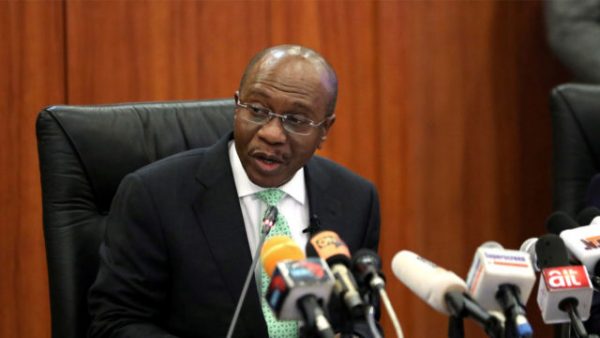The Federal Government has projected that debt servicing will cost N10.43tn by 2025, according to the 2023-2035 Medium Term Expenditure Framework & Fiscal Strategy Paper.
This is a 182.66 per cent increase from the N3.69tn budgeted for debt service in 2022.

Multilateral agencies and economists have constantly warned the Federal Government about the rising cost of debt service, which can trigger a crisis for the country.
However, the Minister of Finance, Budget and National Planning, Dr Zainab Ahmed, and the Director General of the Debt Management Office, Patience Oniha, have insisted that the country does not have a debt problem but a revenue challenge.

In a document by the DMO DG recently obtained by our correspondent, the DMO stated that high debt levels would often lead to high debt services and affect investments in infrastructure.

According to the DMO DG, “High debt levels lead to heavy debt service which reduces resources available for investment in infrastructure and key sectors of the economy.”
In the document, she stressed the need for debt sustainability, which she defined as the ability to service all current and future obligations, while maintaining the capacity to finance policy objectives without resort to unduly large adjustments or exceptional financing such as arrears accumulation, debt restructuring, which could otherwise compromise the economy’s stability.
Speaking at the launch of the World Bank’s Nigeria Development Update titled, ‘The urgency for business unusual,’ held recently in Abuja, the finance minister had admitted that Nigeria was struggling to service its debt.
She said, “Already, we are struggling with being able to service debt because even though revenue is increasing, the expenditure has been increasing at a much higher rate, so it is a very difficult situation.”
The International Monetary Fund had earlier warned that debt servicing might gulp 100 per cent of the Federal Government’s revenue by 2026 if the government failed to implement adequate measures to improve revenue generation.
According to the IMF’s Resident Representative for Nigeria, Ari Aisen, based on a macro-fiscal stress test that was conducted on Nigeria, interest payments on debts might wipe up the country’s entire earnings in the next four years.
Aisen said, “The biggest critical aspect for Nigeria is that we have done a macro-fiscal stress test, and what you observe is the interest payments as a share of revenue, and as you see us in terms of the baseline from the federal government of Nigeria, the revenue of almost 100 per cent is projected by 2026 to be taken by debt service.
“So, the fiscal space or the amount of revenues that will be needed and this, without considering any shock, is that most of the revenues of the Federal Government are now, in fact, 89 per cent and it will continue if nothing is done to be taken by debt service.”
Less than two months after Aisen’s warning, the finance minister disclosed that Nigeria’s debt service cost surpassed its revenue in the first four months of this year.
Debt service gulped N1.94tn between January and April 2022, as against a retained revenue of N1.63tn.
According to a recent PUNCH report, the Federal Government exceeded its debt service allocation by N1.15tn for the period between January and November 2021.
A copy of the public presentation of the 2022 approved budget by the finance minister showed that the Federal Government allocated N3.32tn for debt servicing in 2021.
However, the minister’s presentation document showed that a total of N4.2tn was spent on debt servicing in 11 months, indicating a difference of N1.15tn or 37.9 per cent of the money allocated for debt servicing for the period.
Media also reported that Nigeria’s debt servicing bill increased by 109 per cent, from N429bn in December 2021 to N896bn in March 2022.
A report by the Nigerian Economic Summit Group and the Open Society Initiative for West Africa has disclosed that Nigeria and 10 other Economic Community of West African States countries are currently in debt distress based on debt sustainability analysis.
The 10 other countries are: Benin, Burkina Faso, Cabo Verde, the Gambia, Ghana, Guinea Bissau, Liberia, Niger, Senegal, and Togo.
It was further disclosed in the report that public debt accumulation for these countries was becoming unsustainable and needed to be addressed to avert the looming debt crisis.
The report warned that the possibility of a debt crisis in Nigeria would adversely affect public and private investments, as well as other sectors of the country.
The World Bank recently said that Nigeria’s debt, which might be considered sustainable for now, was vulnerable and costly.
According to the Washington-based global financial institution, the country’s debt was also at risk of becoming unsustainable in the event of macro-fiscal shocks.
Experts have kicked against the Federal Government’s proclivity for debt, which they have described as unsustainable.
Economists slam FG’s debt proclivity
The Chief Executive Officer of Centre for the Promotion of Private Enterprise, Dr Muda Yusuf, said that the Nigerian economy had been characterised by diverse economic vulnerabilities, which included rising public debt and debt service burden.
He said, “Debt service to revenue ratio for the first four months of the current year is over 100 per cent. The implication of this is that the actual revenue of the government over the period is not sufficient to service debt. Therefore, financing of the operations of government – personnel cost, overhead cost, capital expenditure, and even part of the servicing of the debt – will have to come from additional borrowing. These portend severe vulnerabilities for the Nigerian economy.”
A Professor of Development Macroeconomics at the University of Lagos, Prof Olufemi Saibu, criticised the government for over-borrowing.
He said, “I think we are over-borrowing. We continue to rely on international benchmarks, which make us lazy in terms of revenue generation.”
Prof Saibu urged the government to lessen its huge expenditure costs and channel money into more productive sectors of the economy.
“With our current heavy infrastructure debt financing and the low productivity in the local economy, the government needs to find a way of reducing its expenditures. We need to redirect the government’s finances to areas that are productive and borrow less for consumption,” he said.
In addition, Prof Saibu said that the government needed to look inwardly and borrow domestically rather than externally, which would lessen the burden of debt service.
He said the government should stop saying the country had the capacity to borrow more, and refrain from ballooning already outsized debts.
Prof Saibu advised that the government should engage the private sector in the area of infrastructure development to reduce the weight on the public sector.
A Professor of Development Economics at Babcock University, Prof Adegbemi Onakoya, said that borrowing was not an issue but the value obtained from it.
He also said that Nigeria had a revenue problem, which had made the country rely more on debt financing.
Prof Onakoya also said that there was a problem when money borrowed was not judiciously applied for productive purposes or programmes that would help production.
 MMS PLUS NG – Maritime, Aviation, Business, Oil and Gas News Online Newspaper with coverage in Maritime, Oil and Gas, Aviation, Power and Energy as well as Financial News
MMS PLUS NG – Maritime, Aviation, Business, Oil and Gas News Online Newspaper with coverage in Maritime, Oil and Gas, Aviation, Power and Energy as well as Financial News










